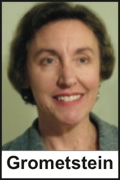Rascals case in brief
In the beginning, in 1989, more than 90 children at the Little Rascals Day Care Center in Edenton, North Carolina, accused a total of 20 adults with 429 instances of sexual abuse over a three-year period. It may have all begun with one parent’s complaint about punishment given her child.
Among the alleged perpetrators: the sheriff and mayor. But prosecutors would charge only Robin Byrum, Darlene Harris, Elizabeth “Betsy” Kelly, Robert “Bob” Kelly, Willard Scott Privott, Shelley Stone and Dawn Wilson – the Edenton 7.
Along with sodomy and beatings, allegations included a baby killed with a handgun, a child being hung upside down from a tree and being set on fire and countless other fantastic incidents involving spaceships, hot air balloons, pirate ships and trained sharks.
By the time prosecutors dropped the last charges in 1997, Little Rascals had become North Carolina’s longest and most costly criminal trial. Prosecutors kept defendants jailed in hopes at least one would turn against their supposed co-conspirators. Remarkably, none did. Another shameful record: Five defendants had to wait longer to face their accusers in court than anyone else in North Carolina history.
Between 1991 and 1997, Ofra Bikel produced three extraordinary episodes on the Little Rascals case for the PBS series “Frontline.” Although “Innocence Lost” did not deter prosecutors, it exposed their tactics and fostered nationwide skepticism and dismay.
With each passing year, the absurdity of the Little Rascals charges has become more obvious. But no admission of error has ever come from prosecutors, police, interviewers or parents. This site is devoted to the issues raised by this case.
On Facebook
Click for earlier Facebook posts archived on this site
Click to go to
Today’s random selection from the Little Rascals Day Care archives….
Click for earlier Facebook posts archived on this site
Click to go to
Today’s random selection from the Little Rascals Day Care archives….
One thing led to another…. boy, did it ever!
 Nov. 16, 2012
Nov. 16, 2012
“In North America in the 1980s, the moral panic about organized child abuse arose in a context that included the following scares:
- “a moral panic about satanic activity;
- “a scare about missing and murdered children;
- “great public anxiety about incest, redefined as child sexual abuse during the 1970s;
- “a wave of disputed custody cases in which women accused their former husbands of sexually abusing children during court-ordered visitations;
- “self-help books by women claiming to be ‘survivors’ of incest and ritual abuse;
- “therapists’ claims that many of their adult women patients suffered from multiple-personality disorder as a result of severe childhood sexual and ritual abuse.
“Of particular importance were claims that society was in denial about widespread child sexual abuse…. Thus, claims about organized child abuse by caregivers were made in a context of claims about similar issues, and the effect of claims in one panic was to reinforce claims in another.”
– From “Wrongful Conviction and the Moral Panic About Organized Child Abuse: National and International Perspectives” by Randall Grometstein (2005)
Prosecutors couldn’t buy off ‘depraved’ defendants
Nov. 16, 2011
“The Little Rascals defendants never wavered in their contention that the allegations were untrue. Not one testified against the other, even though prosecutors commonly offer leniency to accused people in exchange for damning testimony.
“If the defendants were so depraved that they in fact sexually abused small children wholesale, how is it that none was tempted to ‘tell all’ to save his or her hide?”
– From an editorial in the Norfolk Virginian-Pilot (June 2, 1997)
Esteemed psychiatrist analyzes Trump – and Junior Chandler

Frances
Sept. 18, 2017
Allen Frances, professor emeritus of psychiatry at Duke University, has been generating lots of attention with his provocative and important new book, “Twilight of American Sanity: A Psychiatrist Analyzes the Age of Trump.”
What better time to look back at Dr. Frances’s 2014 call to correct the “egregious injustice” committed by the State of North Carolina against Junior Chandler.
![]()
Children ‘defend veracity of implanted memories’
Sept. 27, 2013
“The children are the big victims (in unfounded sex abuse cases) and are sacrificed…. Can you imagine being a child and being interrogated, being sent to the gynecologist, seeing your mother cry, seeing your father getting into fights, or a person you really like being sent to prison? You actually end up believing that this happened to you, that’s what we called ‘added memory.’
“Those children grow up with the same memories as those who actually experienced child abuse. I found it disturbing and I felt that it had to be told.”
– From an interview with Thomas Vinterberg, director of “The Hunt,” at filmophelia.com (July 11, 2013)
Vinterberg’s sympathy for the children in such cases is well placed – but do they in fact “grow up with the same memories as those who actually experienced child abuse”?
Although reliable follow-up is scarce, Debra Poole, professor of psychology at Central Michigan University, had this to say about the unfounded claims of child witnesses in the Fells Acres (Amirault) case:
“It has nothing to do with lying and everything to do with the implanting of false memories…. Studies have shown that children will vehemently defend the veracity of implanted memories. They recall reporting them, and those reports produce mental images of the events that these individuals cannot distinguish from their real experiences. But the kids are not responsible for that. The interviews are.”
The Little Rascals child witness I talked with insists she continues to “remember vividly what happened.”











0 CommentsComment on Facebook